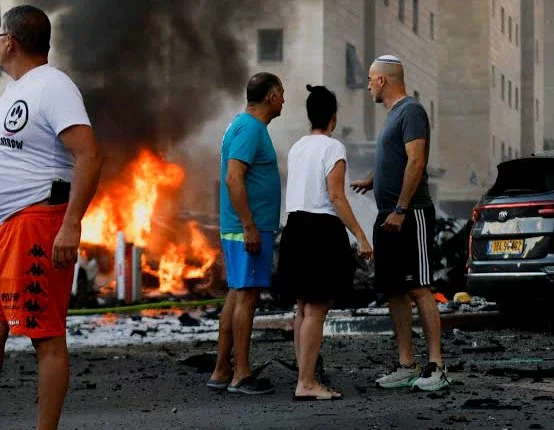
... Nepali Students in Bunkers Survive on Water
With international students among the hundreds killed and injured in escalating violence since the attack on Israel from the Gaza Strip on Saturday 7 October, governments are concerned about the safety of their citizens, including students in both Gaza and Israel.
Ten undergraduate students from Nepal were among those killed in the attacks by the Palestinian Islamist group Hamas on Israel on Saturday. Four other Nepali students were injured from the group of 17 Nepali students at Kibbutz Alumim, an area near the Gaza Strip in southern Israel. Another two students from the group were uninjured.
The final semester students from Nepal's Far Western University (Sudurpaschim University) were doing fieldwork in the Sedot Negev Agriculture Training Center in Israel, just 17 km from the Gaza Strip, as a part of their university programme when they came under attack. Others at the centre included students from Cambodia.
"Ten students have lost their lives in the attack while one is still missing. Four of the injured are receiving treatment," said Kanta Rizal, Nepal's ambassador in Tel Aviv.
A friend of the deceased, Louish Rijal, a student at the training centre, said four of his friends were killed in the grenade attack and six others were shot by the Hamas militants.
"I was in regular touch with them. First, they were attacked with grenades and then some militants entered their bunker and shot them," Rijal told University World News.
"Most of them died of excessive bleeding. If there was timely treatment, they could have been saved."
"Unfortunately, we have suffered a huge loss. We have never thought of such a tragedy," Dr Amma Raj Joshi, vice-chancellor of Far Western University, told University World News. Joshi said the university had been "very encouraged" to be able to send the students to Israel, hoping they could learn about the use of technology in agriculture, considered to be excellent in Israel, while also earning some money.
"Fieldwork is necessary in the last semester before graduation. The students had gone to Israel to gain firsthand experience in the field. They would have graduated after presenting their report of their work," Joshi said.
Plea To Shift Students To Safer Places
The university has urged Nepal's Office of the Prime Minister, Home Ministry, Education Ministry, Foreign Ministry and Nepali Embassy in Israel to shift the students to a safer location.
The Nepali government also announced that it would provide NPR1 million (US$7,500) to the families of each of the deceased. Minister for Communications and Information Technology Rekha Sharma, also a government spokesperson, told the media: "The government will repatriate those who wish to return."
The Israeli army by Monday had secured the area around the Sedot Negev Agriculture Training Center, according to official sources in Tel Aviv.
As many as 49 students from Far Western University, in Nepal's Chitwan region, had gone to Israel for an 11-month programme as part of their university practical work requirement. A total of 265 Nepali students from the eighth semester, including those from Far Western University, are studying in different Israeli institutions under the 'Learn and Earn' programme supported by the government of Israel.
Of those, 119 are from Agriculture and Forestry University and 97 from Nepal's Tribhuvan University. Agriculture and Forestry University students are enrolled at Ramat Negev International Training Centre for Advanced Agriculture and those from Tribhuvan University are at Kinneret College.
The Israeli embassy in Kathmandu facilitated the enrolment of Nepali students in different institutions. Tribhuvan University has been sending its students for practical work for several years, but it was the first cohort from Far Western University.
Hanan Goder, Israeli ambassador to Nepal, said his embassy had taken the initiative to send Nepali students for training so that they could bring skills back home and contribute to Nepal's agriculture sector. "Learn and Earn is a part of cooperation between the two countries," said Goder.
Hiding in bunkers
Dozens of other Nepali students in the southern belt of Israel, which came under Hamas attack, were hiding in bunkers at least until Monday afternoon without food. "We have been hiding in a bunker ever since the attack began on Saturday morning. It has been more than 48 hours we are surviving on water," said Rijal from a bunker in southern Israel, where 11 Nepalis are hiding.
"We have been appealing for rescue to our embassy and college administration but no support has arrived."
As the fighting continued, rumours that the militants were still in the area frightened the students who said they were living in terror, according to their calls for help via different social media platforms.
Posting a letter addressed to Nepal's Prime Minister Pushpa Kamal Dahal, Suraj Bhandari, a student of Nepal's Agriculture and Forestry University living in Kadesh Barnea, close to the border with Egypt, appealed for repatriation saying he didn't want to die.
"You are our only hope. We don't want to die in the fight between two foreign countries. Please rescue us," reads a line of his letter.
Officials at the Nepali embassy in Israel say they are in close coordination with Nepal's Ministry of Foreign Affairs to repatriate the dead bodies and others. "We are making every possible effort for the rescue. Hopefully, we can translate it into action very soon," said Rizal.
Other students affected
A Cambodian student, Chan Udom, a third-year student at the faculty of veterinary medicine at the Royal University of Agriculture, Phnom Penh, also died near the Gaza border, the country's Ministry of Foreign Affairs said.
Cambodian officials said that they were working to return the body of the deceased to his family as soon as possible. Around 450 Cambodians are in Israel, the majority of them studying agriculture or working on farms, according to a government spokesperson.
Cambodian Prime Minister Hun Manet said three other students were rescued from conflict zones and are in a safe place.
Thailand's foreign ministry said 11 of its nationals had been abducted during the fighting in southern Israel and presumably brought to Gaza. The Thai embassy later said some 8 to 9 Thai students enrolled in universities in Israel were confirmed safe. The Thai students "are innocent and have nothing to do with any conflict", Thai Prime Minister Srettha Thavisin was quoted by the Bangkok Post newspaper as saying.
Thailand's deputy minister of foreign affairs said his department was still awaiting clearance from Israel to allow Thai flights to evacuate Thai nationals, with six Royal Thai Air Force planes being prepared to evacuate around 30,000 Thai citizens from Israel.
Tanzania's embassy in Israel has also announced that it is intensifying efforts to locate two Tanzanian students who are reportedly missing amid the conflict. The students were actively engaged in an internship programme focused on agri-business studies.
Israeli universities have delayed the start of the academic year, which was due to begin on 15 October, to 22 October, due to the conflict. The Association of University Heads in Israel, representing nine research universities said in a statement: "Many male and female students and faculty members were drafted into reserve service and we pray that they will return safely soon."
The Hebrew University of Jerusalem confirmed it would close its buildings "in areas where safety considerations are less certain", such as Rehovot, said the university's leadership in a statement.
"Special programmes, including mechinot [pre-military training] initiatives for international students, are already underway, and examinations are progressing as scheduled," the statement issued on 9 October added.
Indian students in Israel
Indian students are among 18,000 Indian nationals in Israel. Around 900 are studying in various institutes and universities, the majority of them pursuing graduate, doctoral and post-doctoral courses.
Some students said, like many in Israel, they did not anticipate the Hamas attack, especially since it was a holiday in Israel. They said they found shelter in designated areas and spent several hours in bunkers until the sirens ceased.
Some Indian students have posted videos on social media, saying they had been forced to take refuge in shelters for extended periods as Hamas militants roamed the streets. These students have maintained constant communication with the Indian Embassy in Tel Aviv through WhatsApp.
The Indian government has said it is actively working to repatriate Indian students stranded in Israel, Minister of State for External Affairs and Culture Meenakashi Lekhi said, emphasising that India's Prime Minister Narendra Modi and his office were directly overseeing the situation in Israel and plans to take suitable action to bring the students back home.
Lekhi told reporters in New Delhi: "The Indian government is putting forth significant efforts to ensure the safe return of these stranded students from Israel."
She also highlighted the government's past success in evacuating Indian nationals from crisis situations abroad, such as 'Operation Ganga' and 'Vande Bharat'.
'Operation Ganga' was an evacuation mission carried out by the Indian government to rescue its citizens, including students, stranded in neighbouring countries during the 2022 Russian invasion of Ukraine.
Similarly, nearly 20,000 Indian students in China were brought back to India under 'Vande Bharat' Mission from China, amid the Coronavirus outbreak there in 2020.
Lekhi said the government, along with the prime minister's office, was in direct communication with those affected and was actively working to manage and monitor the ongoing situation.
Students are anxious and fearful
However, Indian students in Israel are anxious and fearful. According to students, the situation in northern Israel remains relatively peaceful irrespective of the ongoing violence. However, the situation in southern Israel continues to be grave and is a matter of concern, particularly for international students.
Bindu, a doctoral student at Hebrew University, told news agency Press Trust of India (PTI) on Saturday that Indian students were in touch with each other and were constantly monitoring the situation. "We are following the [embassy] guidelines and are safe", she added.
Vikas Sharma, a postdoctoral fellow at Hebrew University's Givat Ram campus, said: "There is a tense atmosphere in Israel due to the attack, but all Indian students are safe. Most of the students are staying in hostels and residences provided by the university. We are in touch with each other as well as the Indian embassy through WhatsApp."
Shweta Trishna, a student at Ben-Gurion University in Beersheba, Israel, said on Tuesday: "The situation is fine in Beersheba right now. But it was not so on Saturday. Due to the continuous rocket attacks, we had to stay in bunkers from 6 a.m. to 12 noon. Since then no sound of sirens has been heard again."
"Right now, we are safe. But if the situation worsens and the Indian embassy asks us to leave, we will leave Israel," she told New Delhi Television (NDTV).
A resident of Faridabad in India's northern state of Haryana said his son is studying at the University of Haifa. He said: "I have talked to my son who told me that the situation is grimmer in the southern part and he and his colleagues have been advised to avoid travelling to Tel Aviv and some other cities."

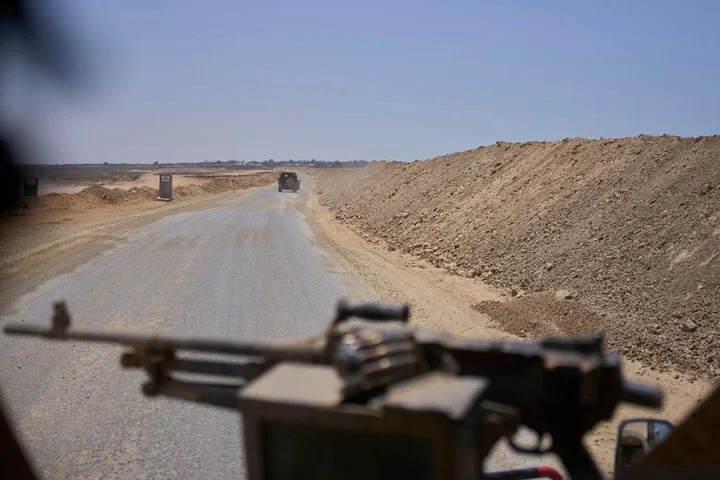
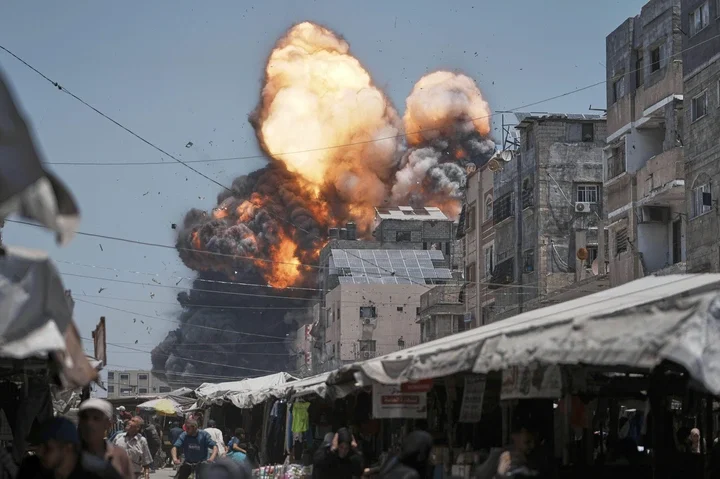

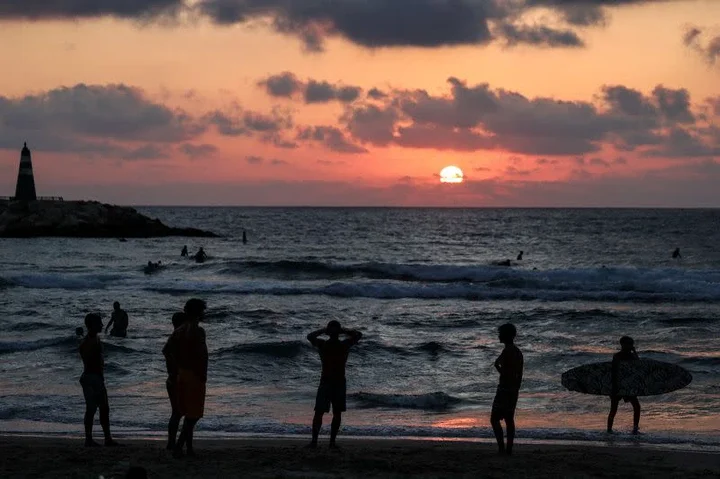
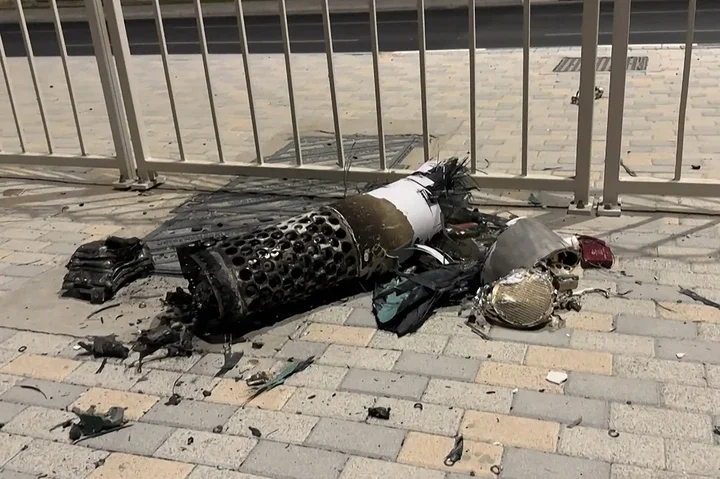
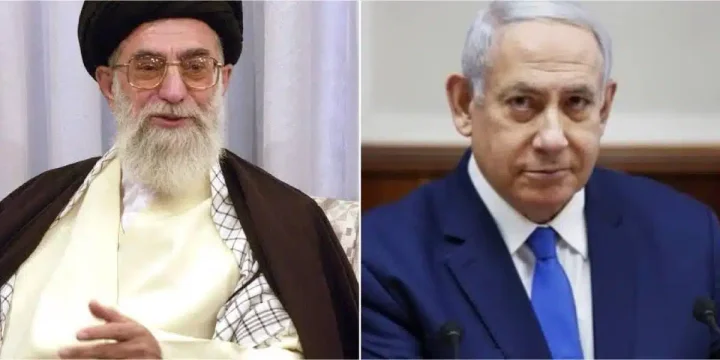









Comments